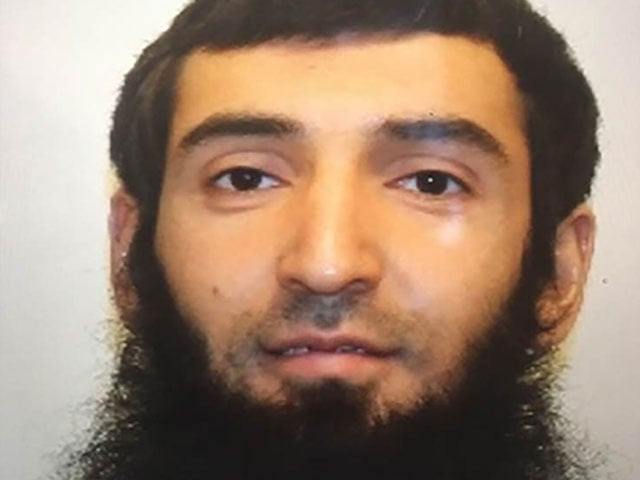American Muslims brace for backlash after NYC attack
American Muslims expressed concern over backlash, Muslims becoming targets of violence

The suspect was identified as an Uzbek immigrant named Sayfullo Habibullaevic Saipov, 29, who entered the United States in 2010, law enforcement officials said. PHOTO COURTESY: NBC NEWS
Umer Ahmad, a 43-year-old American-Muslim physician from New Jersey, was in his Trenton office when he heard the news.
"My initial reaction was, obviously, concern and shock over what happened," Ahmad told NBC News. "And then, basically, I was wondering if it was a Muslim who did it."
NYC attack plot: Pakistani-American’s extradition hearing delayed
The suspect was identified as an Uzbek immigrant named Sayfullo Habibullaevic Saipov, 29, who entered the United States in 2010, law enforcement officials said.
Saipov allegedly hopped out of the truck and shouted "Allahu Akbar," or "God is great," before firing a BB or pellet gun, four senior law enforcement sources said. Law enforcement sources said he left a note in the truck claiming he committed the attack for the Islamic State (IS) terrorist group.
A police officer on patrol in the area opened fire, hitting the suspect in the abdomen and ending what New York Mayor Bill de Blasio called "an act of terror."
Ahmad's question was answered.
Staying alert at all times, Muslims in New York and elsewhere have guarded against a surge in vicious attacks.
"My biggest concern is that he's readily identified as a Muslim and then that is extrapolated out to my own faith," he said.
In wake of Tuesday's attack, some American-Muslims and community leaders expressed concerns over how their religion would be perceived and whether Muslims would become targets of violence.
"There has been a history of, sort of, blowback, and that's obviously going to be something that people think about," said Ali Najmi, a board member of the Muslim Democratic Club of New York. "But the primary concern is, usually, and is now, how we can best lend ourselves in this time of crisis."
Najmi predicted that American-Muslim groups would organise around ways to help those affected by Tuesday's attack.
"Their primary concern is about how we can be helpful and how we can help the victims and people in crisis," he said.
Afaf Nasher, executive director of the New York chapter of the Council on American-Islamic Relations (CAIR), said the action and attitude that Muslim Americans must take were ones of continued service — "service to what needs to be done for, number one, those that are attacked, but also just in general for the general community."
"From our perspective as American-Muslims, we are just incredibly heartbroken," Nasher added. "And just thinking about the senseless blood that was spilled and thinking about the families who are now in mourning, it's difficult to even talk."
Ahmad, the physician, said he worried about backlash every time an attack like Tuesday's happens. But "I feel I'm more worried about what the response from political leadership would be," he said.
Ahmad said he had seen the American-Muslim community change since the terrorist attacks of September 11, 2001, the deadliest on US soil.
"Ever since 9/11, we've become much less insular," he said. "We're more prone to reaching out and letting people know who we are and basically trying to create those connections in our communities.
"That's been a real important bridge to try to at least mitigate some of the misconceptions, and consequences of those misconceptions," he said.
US snubbed calls to hit ‘terror havens’ in Pakistan: Karzai
Nasher said there were ways to combat the negative image often associated with Islam.
"We as Muslims carry the responsibility to show what we say and what we preach, and that's something we do every day," she said.
Ahmad gave some simple advice.
"Get to know a Muslim in your community, and maybe then you might have a different opinion," he said.
This story first appeared on NBC News



















COMMENTS
Comments are moderated and generally will be posted if they are on-topic and not abusive.
For more information, please see our Comments FAQ